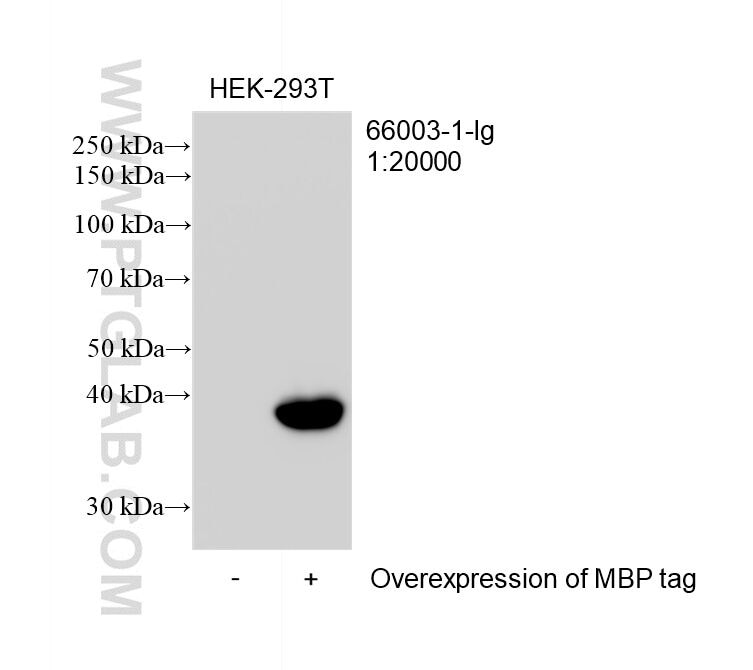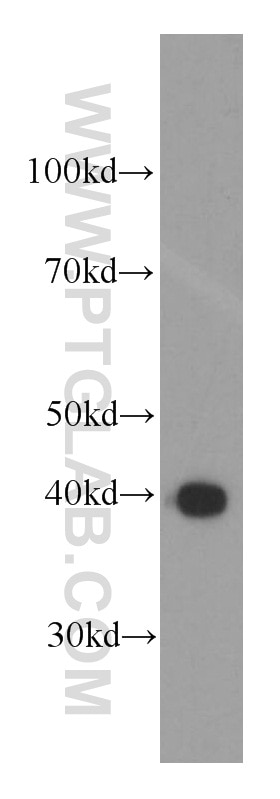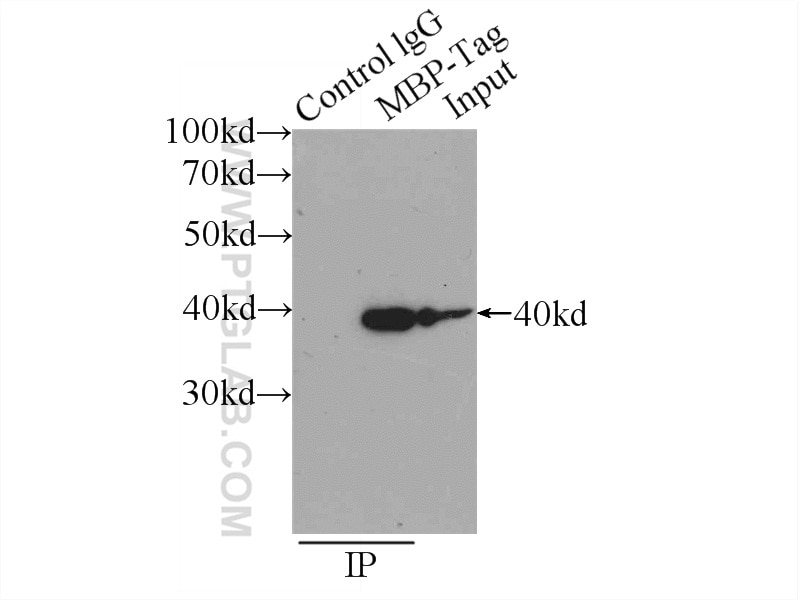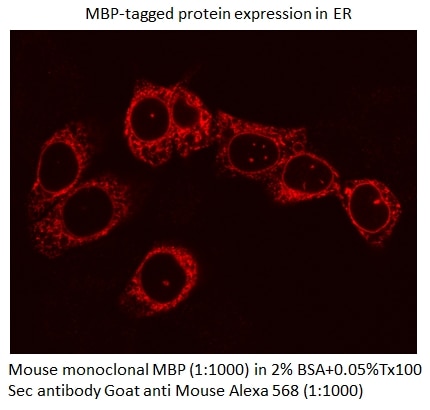Validation Data Gallery
Tested Applications
Recommended dilution
| Application | Dilution |
|---|---|
| It is recommended that this reagent should be titrated in each testing system to obtain optimal results. | |
Product Information
66003-1-PBS targets MBP tag in WB, IF/ICC, IP, ELISA applications and shows reactivity with recombinant protein samples.
| Tested Reactivity | recombinant protein |
| Host / Isotype | Mouse / IgG2a |
| Class | Monoclonal |
| Type | Antibody |
| Immunogen |
CatNo: Ag0942 Product name: Recombinant MBP-Tag protein Source: e coli.-derived, Unknow Tag: N/A Sequence: 相同性解析による交差性が予測される生物種 |
| Full Name | MBP tag |
| Calculated molecular weight | 40 kDa |
| Observed molecular weight | 40 kDa |
| Gene Symbol | |
| Gene ID (NCBI) | |
| RRID | AB_11183040 |
| Conjugate | Unconjugated |
| Form | |
| Form | Liquid |
| Purification Method | Protein A purification |
| Storage Buffer | PBS only{{ptg:BufferTemp}}7.3 |
| Storage Conditions | Store at -80°C. |
Background Information
Protein tags are protein or peptide sequences located either on the C- or N- terminal of the target protein, which facilitates one or several of the following characteristics: solubility, detection, purification, localization and expression. Maltose binding protein(MBP) is the 370 amino acid product of the E.coli mal E gene. MBP is a useful affinity tag that can increase the expression level and solubility of the resulting tagged protein. The MBP tag also promotes proper folding of the attached protein. Plasmid vectors have been constructed utilizing the MBP domain that allow the synthesis of high levels of MBP-fusion proteins that can be purified in a one step procedure by affinity chromatography cross linked amylose resin. Once bound to amylose, the MBP protein can then be separated from the target protein by cleavage by coagulation Factor Xa at a specific four residue site. Alternatively, the intact fusion protein can be specifically eluted from the resin by the addition of excess free maltose. Subsequent to elution, MBP fusion protein can be visualized either by Western blot analysis or immunoprecipitation using antibodies specific for the MBP-tag. An antibody to MBP can also be used to isolate or detect expression of the protein.




